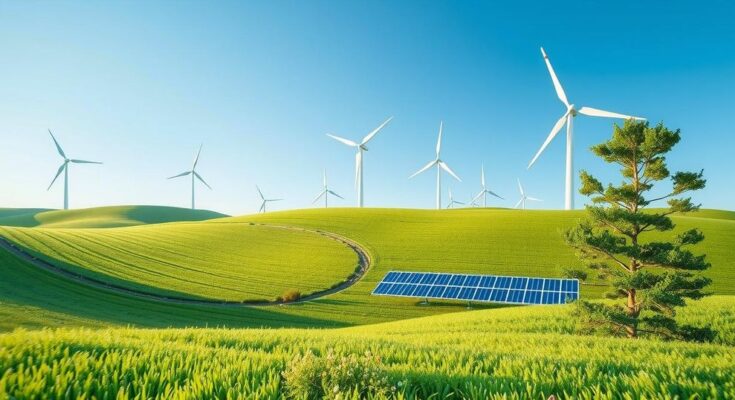In the quest for a sustainable future, Panasonic Group has embarked on ambitious R&D initiatives aimed at achieving carbon neutrality by 2050. Under the Panasonic GREEN IMPACT (PGI) strategy, the company aims for near-zero CO2 emissions at all operational companies by 2030, while targeting to cut down overall CO2 emissions by over 300 million tons, roughly 1% of the global total. This multifaceted approach involves addressing environmental issues through innovation and strategic growth.
As part of their commitment, Panasonic is expanding its focus beyond traditional carbon neutrality and circular economy strategies to include a ‘nature positive’ framework that supports biodiversity. This new direction was announced by the company in September 2023, reinforcing their mission to develop technologies that not only reduce carbon footprints but also enhance natural ecosystems.
Tatsuo Ogawa, the Group CTO, emphasizes that the Technology Division’s efforts are centered around co-creating solutions that promote sustainability and well-being. Ogawa highlights that collaboration within the technology realm is crucial for addressing long-term environmental challenges, ensuring the integration of diverse expertise, particularly for energy projects.
Hideo Ohara leads the push for hydrogen research, which integrates past learnings, including overcoming failures in previous technologies. Emphasizing the importance of public-private collaboration, he elaborates that resilience in innovation is key, fostering an environment where gradual advancements can be made in energy sectors.
Panasonic’s ambitious projects aim to enhance competitiveness and include developing next-gen technologies like perovskite solar cells, designed for efficiency and flexibility to serve as energy-generating glass. This innovative approach is a response to the evolving needs for aesthetics and functional energy solutions in architecture.
In addition to renewable energy solutions, Panasonic’s exploration of green hydrogen production emphasizes the role of renewable resources in minimizing carbon emissions. With a focus on electrolysis powered by clean energy, the initiative aims to reshape energy consumption in industries historically reliant on fossil fuels.
The bioplastic kinari, derived from plant cellulose, represents another revolutionary step towards a circular economy, offering recyclable materials that reduce dependency on petroleum. With distinct recycling models, kinari promises to contribute to a sustainable cycle of material use and regeneration.
Lastly, Panasonic’s bio-CO2 transformation technology aims to utilize atmospheric carbon dioxide for agricultural enhancement, paving the way for sustainable food production without chemical fertilizers. Through these innovative avenues, Panasonic is cultivating a robust strategy tackling environmental challenges.
Panasonic Group is spearheading R&D initiatives to achieve carbon neutrality by 2050, targeting zero CO2 emissions by 2030 across its operations. The company is expanding its focus to include ‘nature positive’ frameworks alongside carbon reduction strategies. Innovative technologies in solar energy, hydrogen production, and bioplastics like kinari reflect Panasonic’s commitment to sustainability. By promoting collaboration and resilience in development, Panasonic aims to foster a sustainable and prosperous future.
Panasonic Group’s commitment to a decarbonized future is vividly illustrated through its strategic R&D initiatives aiming at carbon neutrality. With innovative technologies such as perovskite solar cells, green hydrogen production, and bioplastics, the company is not only addressing current environmental crises but also leading the charge towards a sustainable economy. By incorporating nature-positive tactics and embracing collaborative efforts, Panasonic is charting a course for a greener tomorrow, harmonizing corporate growth with ecological responsibility.
Original Source: news.panasonic.com



